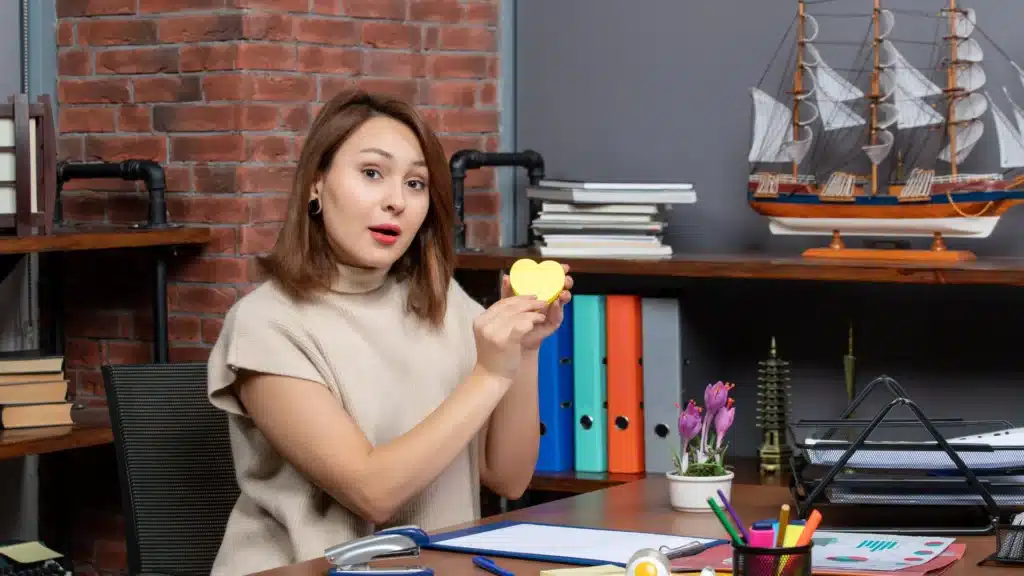Teenagers start to negotiate the complexity of growing up during a vital phase of development, and their journey is deeply influenced by responsibility and teen motivation, which helps them shape their future. Their motivation and general emotional growth can be greatly shaped by the way they approach responsibility—that of managing their homework, preserving relationships, or owning their actions. Teenagers who embrace responsibility and teen motivation not only develop their sense of accountability but also create conditions for them to grow into confident, competent adults, enabling them to adopt an action mindset for teenagers.
We investigate in this blog post how teens’ responsibility and teen motivation are closely linked, and provide ideas on how parents and teachers could help to develop these important abilities, including student motivation strategies. We will also explore typical difficulties teenagers have learning responsibility and go over useful case studies to help them through the process.
Understanding the Connection Between Responsibility and Motivation
Personal development revolves mostly on responsibility. It shows the capacity of one to own their acts and results. Teenagers’ motivation levels can be greatly influenced by this sense of responsibility, which shapes their approach to chores, decisions, and relationships management.
1. The Foundation of Emotional Growth
Encouraging teenagers to be responsible helps them to realize that their choices have both good and bad results. Emotional development requires this insight, and self-discipline in teens is a major factor in developing this maturity.For instance, a student who is in charge of finishing their schoolwork on time discovers that their efforts directly determine their academic performance, showcasing the power of time management for teenagers. In the same vein, Teens who take ownership of their personal connections develop emotional maturity and empathy by realizing how their behavior affects the emotions of others, which is critical for discipline tips for students.
For instance, an adolescent who apologizes for a mistake they made in a friendship not only admits their behavior but also owns the emotional impact their actions could have had. Development of robust, healthy relationships depends on this capacity for introspection and careful response, a skill that contributes greatly to motivation hacks for teen students.
2. Building Trust and Independence
Teenagers’ drive for independence is among the strongest ones available, and it can be fueled by responsibility and teen motivation, and it thrives when combined with responsibility and teen motivation. This process is much enhanced by responsibility, helping teens understand how to stay motivated as a teenager in the face of challenges. Teenagers who show dependability and responsibility naturally inspire trust among their parents, instructors, and friends.Greater autonomy and more chances to make their own judgments follow from this trust, which also usually results from teen coaching benefits.
For instance, a kid who regularly completed their homework or keeps their word to friends could be granted more rights, such as a later curfew, demonstrating self-discipline in teens. These chances inspire more will to behave ethically, creating a foundation for personal accountability teens.
3. Preparing for the Future
Teenagers’ acquired abilities go much beyond their time of adolescence when they own their mistakes.Effective management of obligations helps teenagers to be ready for the demands of adulthood, strengthening their action mindset for teenagers. From time management for teenagers to problem-solving, responsibility enables teenagers to develop the fundamental abilities required for success both personally and professionally.
For instance, a kid who develops good time management for teenagers by learning to arrange their study calendar and fulfill deadlines is not only getting ready for tests but also developing vital abilities that will help them in their next job.
Effective Strategies for Encouraging Responsibility in Teens

Though responsibility is vital, teenagers sometimes find it difficult to understand, often due to why teenagers struggle with motivation. Still, parents and other caregivers can encourage teenagers’ responsibility with a range of techniques. Still, parents and other caregivers can encourage teenagers’ responsibility with a range of techniques.
1. Setting Clear Expectations and Boundaries
Clearly defined expectations define responsibility. Teenagers must know what is expected of them and the results of failing those expectations. Setting limits and being consistent will enable parents to help teenagers absorb responsibility.
For instance, a parent might tell their teen, “You have daily dog walking responsibility following school. Should you skip a day, you will have to make up the lost one by doing an extra chore the following. This kind of clear instructions helps the kid realize their part and the possible results of ignoring their obligations.
2. Using Logical Consequences
Logical consequences link the teen’s actions straight to results rather than punishing ones. This method teaches teenagers cause and effect in a way that makes sense by letting them link their decisions with actual outcomes.
For instance, a youngster can have an earlier curfew the next evening if they miss one. This supports the notion that accountability and responsibility fit within a greater framework of rights and trust.
3. Empowering Teens Through Decision-Making
Let teenagers make decisions and see the results of their decisions to help them to develop responsibility. Seeing the actual results of their activities motivates them more to be responsible and helps them develop their decision-making abilities.
For instance, letting a teen select how they spend their allowance or manage their homework helps them to learn to accept consequences and take ownership of their decisions.
4. Incorporating DBT-Based Tools
Dialectical Behavior Therapy for Adolescents (DBT-A) offers several tools to help teens manage their emotions and develop accountability. One of the key techniques used in DBT-A is the DEAR MAN framework, which helps teens assert their needs while maintaining responsibility for their actions.
DEAR MAN stands for:
- Describe: The teen explains their situation.
- Express: They share their feelings or thoughts.
- Assert: They state their request or position.
- Reinforce: They explain the positive outcome of meeting the request.
For instance, a student might employ DEAR MAN to negotiate a later curfew by saying, “I’ve finished my homework and chores early today. Managing additional responsibility gives me confidence. Could I leave on weekends thirty minutes later? If I get home on time, I’ll show you I can be trusted with more independence.”
5. Fostering Self-Reflection
Teenagers gain by being able to examine their behavior, especially when they make mistakes. Encouragement of teenagers to own their mistakes without assigning guilt to others develops emotional maturity and self-awareness.
For instance, parents might assist teenagers considering the circumstances if they miss to finish an assignment instead of blaming outside events: “What could you do differently next time to avoid forgetting your homework?”
Overcoming Common Challenges in Teaching Responsibility
Though there are advantages, encouraging kids’ accountability isn’t always easy. Teenagers sometimes struggle with responsibility, which shows up as anxiety or defensiveness. Encouragement of development depends on an awareness of these difficulties and their solutions.
1. Dealing with Resistance and Defensiveness
Many teenagers object to assuming responsibility since they feel under judgment or criticism. In these circumstances, parents should apply validation techniques—which respect the teen’s emotions without supporting the reckless behavior—that recognize the scenario.
For instance, a parent might respond, “I see that you’re frustrated,” if a youngster misses curfew. While I know things happen, it’s crucial to abide by the guidelines we have established together.”
2. Managing Anxiety and Overwhelm
Some teenagers, especially those who worry about failing, could be nervous about assuming obligations. Strategies like the DBT-A strategy of “opposite action” allow parents to assist teenagers overcome their anxiety and increase confidence.
For instance, parents might help a teen who is anxious about presenting to practice in a low-stress setting at home, therefore progressively boosting their confidence before the big day.
3. Balancing Support with Independence
Parents have to let teenagers make errors even as they help them on their path toward responsibility. Giving teenagers the natural results of their choices without micromanaging helps them to learn the need of personal accountability.
For instance, parents might let a teen leave without lunch instead of intervening to make sure they pack their lunch. This will make the youngster feel uncomfortable. This event will enable the young person to appreciate the need for future preparedness.
Practical Examples for Parents
These techniques can be modified in real-life situations to enable teenagers grow in responsibility in many spheres of their life:
Scenario 1: Household Chores
First scenario: housework duties.
Challenge: A teen routinely forgets to empty the garbage.
Solution: Clearly state logical conclusions and expectations. Should the teen neglect their assignment, they will have to cover for it by doing extra housework.
Scenario 2: Schoolwork
Teenagers who forget to study for a test suffer low performance.
Solution: Help them establish a more efficient study plan for the next test instead of punishing their emotions. This promotes responsibility and problem-solving.
Scenario 3: Social Responsibility
Teenagers miss a promise to a friend.
Help them to consider how their actions affect others and inspire them to apologies so as to strengthen empathy and responsibility in their social contacts.
The Importance of Consistency in Teaching Responsibility
Consistency is among the most crucial elements in encouraging teenagers’ responsibility and teen motivation, ensuring they understand the connection between their actions and outcomes. Teenagers thrive on routine and well defined limits; so, it is imperative for parents and other caregivers to constantly emphasize the teachings of responsibility. Teens are more likely to absorb these lessons and use them in next events when they realize their activities have consistent effects—positive or negative.
If a kid is in charge of cleaning the dishes after dinner but ignores the work, for instance, the parent should regularly enforce the agreed-upon consequence—an additional chore or an earlier curfew. Consistency helps teenagers realize that accountability is not only a one-time occurrence but a continuous requirement in all spheres of their life.
Moreover, consistency fosters confidence. Teenagers are more likely to obey the limits imposed by their parents when their parents hold them fair and predictable responsibility. This confidence fosters a more open and encouraging relationship whereby teenagers may feel safe in learning from their mistakes and owning their actions.
Conclusion
A teen’s drive and emotional development are shaped by their fundamental ability of responsibility. Parents and guardians support teenagers in laying the groundwork for independence, achievement, and resilience by guiding them through the process of owning their actions, which is central to responsibility and teen motivation. Clear expectations, encouraging plans, and a readiness to let them face the results of their behavior will help them to grow in the responsibilities that will benefit them all their lifetime.Recall that developing responsibility and teen motivation in your teen is a slow process, requiring patience and persistence. Your teen will develop into a more self-assured and driven person ready to face the demands of adulthood if you are patient, persistent, and motivating.







